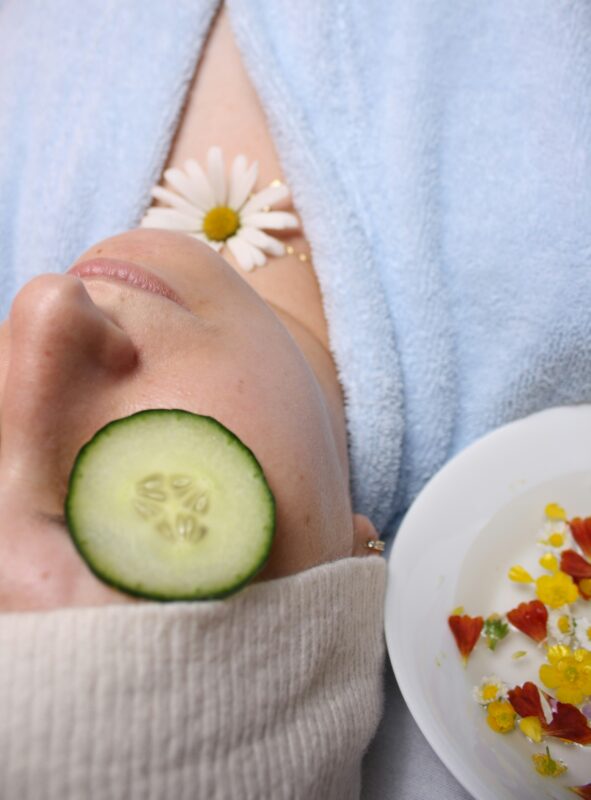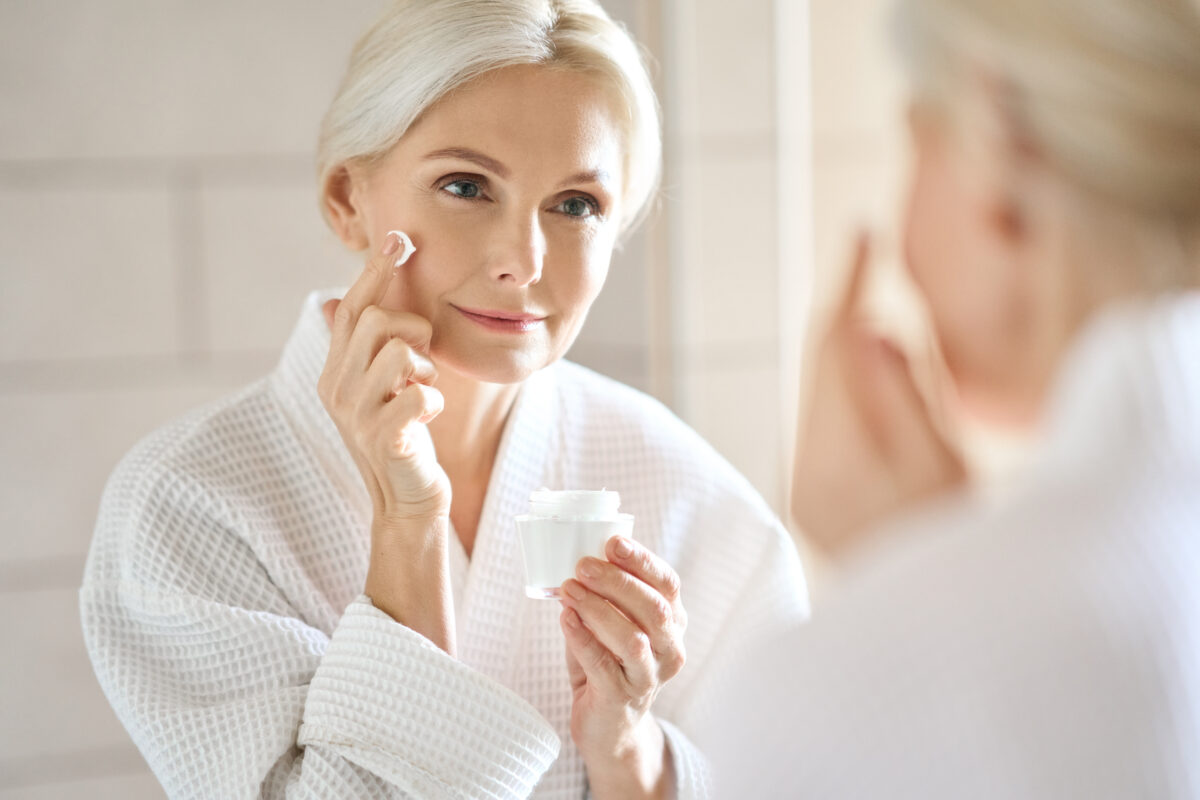Skincare
Maintaining a healthy skincare routine
Maintaining a skincare routine involves a few key steps and using appropriate products for your skin type. It also has many skin benefits in the long run; here’s a general guide to help you establish and maintain a skincare routine:
1. Identify Your Skin Type
Understanding your skin type is crucial for selecting the right products. Skin types generally include:
- Normal: Well-balanced, not too oily or dry.
- Oily: Shiny and prone to acne.
- Dry: Flaky, rough, and may feel tight.
- Combination: Oily in some areas (usually the T-zone) and dry in others.
- Sensitive: Prone to irritation and redness.
2. Basic Skincare Routine
Morning Routine:
- Cleanser: Use a gentle cleanser suitable for your skin type to remove dirt and oil that accumulate overnight.
- Toner: Apply toner to balance the skin’s pH and remove leftover impurities.
- Serum: Use a serum with ingredients like vitamin C for brightening or hyaluronic acid for hydration.
- Moisturizer: Apply a lightweight moisturizer to keep your skin hydrated.
- Sunscreen: Always use a broad-spectrum SPF 30 or higher to protect your skin from UV damage.
Evening Routine:
- Cleanser: Cleanse your skin to remove makeup, dirt, and impurities accumulated during the day.
- Toner: Apply toner to prepare your skin for the next steps.
- Serum: Use a nighttime serum, which might include ingredients like retinol to support skin repair and anti-aging.
- Moisturizer: Apply a richer moisturizer to give your skin extra hydration overnight.
- Eye Cream: Use an eye cream to target issues like dark circles, puffiness, or fine lines around the eyes.

3. Listen to Your Skin:
Adjust your routine based on how your skin responds. If a product irritates, discontinue use and consult a dermatologist if necessary.
You can achieve and maintain healthy, glowing skin by following these steps and maintaining consistency.
Explore these seven tips to get glowing skin from home!
- Virgin Coconut Oil for Naturally Glowing Skin. …
- Aloe Vera for Rejuvenating Skin. …
- Milk for Radiant Skin. …
- Honey for Moisturized & Supple Skin. …
- Papaya for Radiant & Younger-Looking Skin. …
- Drink Water for Natural Glowing Skin. …
- Eat Healthy & Rest Well.
Additional tips:
- Exfoliate: Exfoliate 1-2 times weekly to remove dead skin cells. Be gentle to avoid irritation.
- Masks: Use masks tailored to your skin’s needs (e.g., hydrating, clarifying) once a week.
- Stay Hydrated: Drink plenty of water to keep your skin hydrated from the inside.
- Healthy Diet: Eat a balanced diet rich in fruits, vegetables, and omega-3 fatty acids.
- Consistency: Stick to your routine consistently for the best results.
A well-designed skincare routine can significantly enhance skin health and appearance by addressing various concerns and promoting overall skin wellness. A comprehensive routine typically includes several key steps: cleansing, toning, moisturizing, and sun protection, along with targeted treatments for specific issues such as acne, hyperpigmentation, or aging.
Cleansing is the foundational step, crucial for removing dirt, oil, and makeup that can clog pores and lead to breakouts. A gentle cleanser suitable for one’s skin type ensures the skin is clean without being stripped of its natural oils. Following cleansing, toning helps to balance the skin’s pH levels and prepare it for the subsequent steps. Depending on their formulation, toners can also provide additional benefits such as hydration, exfoliation, or soothing properties.
Moisturizing is essential for maintaining the skin’s barrier function and preventing dryness. A good moisturizer hydrates the skin, locks in moisture, and can include ingredients like hyaluronic acid, glycerin, and ceramides that support skin health. In the daytime, incorporating a moisturizer with SPF is crucial to protect the skin from harmful UV rays, which can cause premature aging and hyperpigmentation and increase the risk of skin cancer.
In addition to these basic steps, targeted treatments can address specific skin concerns. For example, serums with antioxidants like vitamin C can brighten the skin and reduce signs of aging, while retinoids can improve skin texture and minimize fine lines and wrinkles. Products containing salicylic acid or benzoyl peroxide can effectively reduce breakouts for those dealing with acne.
Exfoliation is another important aspect of a skincare routine, though it should be done in moderation. Regular exfoliation helps remove dead skin cells, promote cell turnover, and prevent clogged pores. Chemical exfoliants like alpha-hydroxy acids (AHAs) and beta-hydroxy acids (BHAs) can be particularly effective.
It’s important to note that the effectiveness of a skincare routine depends on consistency and patience. Results typically take time to become noticeable, often requiring several weeks to a few months of regular use. Additionally, individual skin types and concerns necessitate personalized adjustments to a routine. Consulting with a dermatologist or skincare professional can provide valuable insights and recommendations tailored to one’s needs.
A thoughtful and consistent skincare routine can significantly improve skin health and appearance, fostering a radiant and youthful complexion. Individuals can achieve and maintain their best skin by addressing basic and specific skincare needs.

